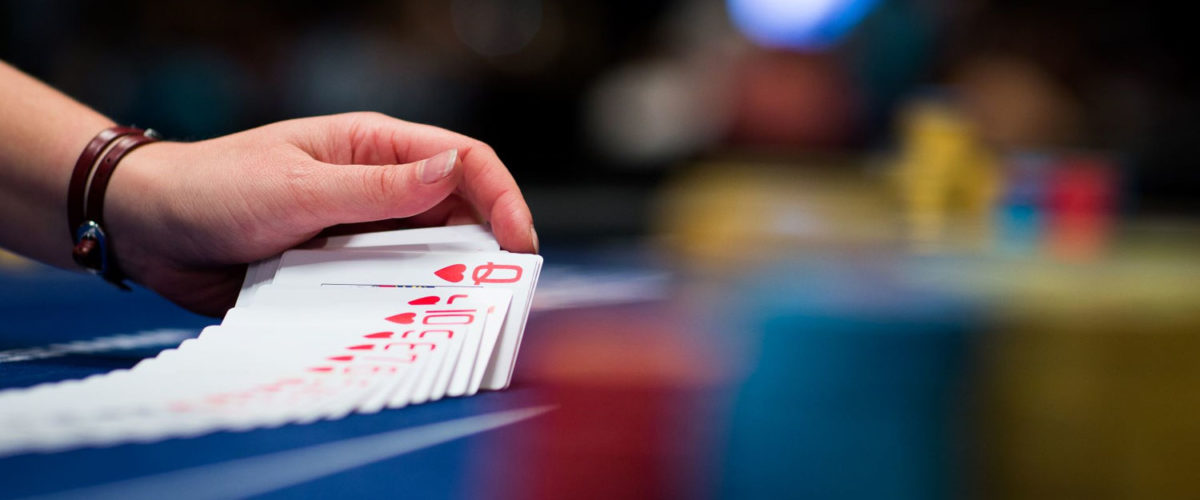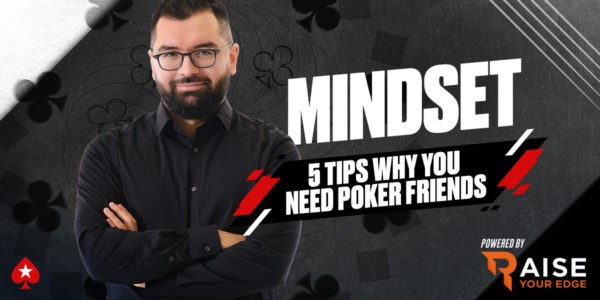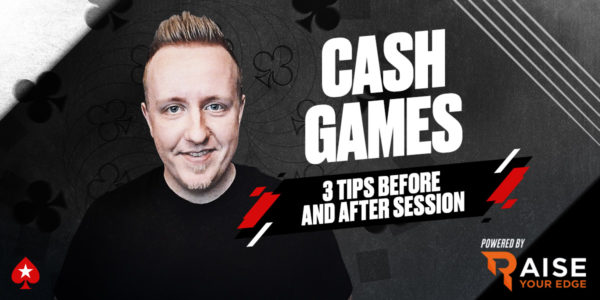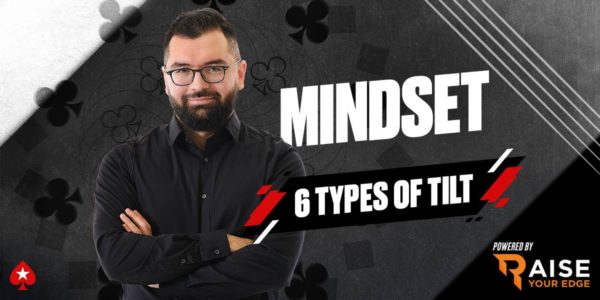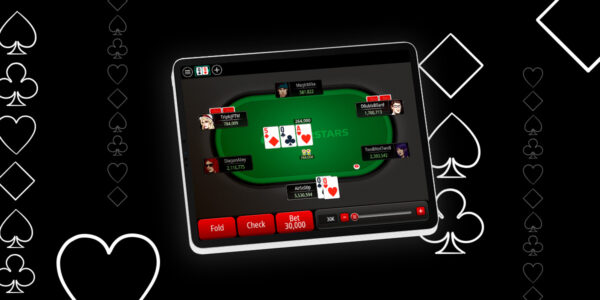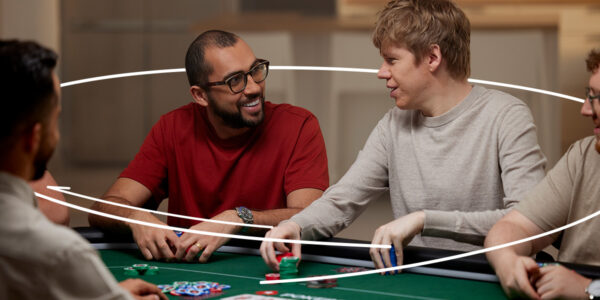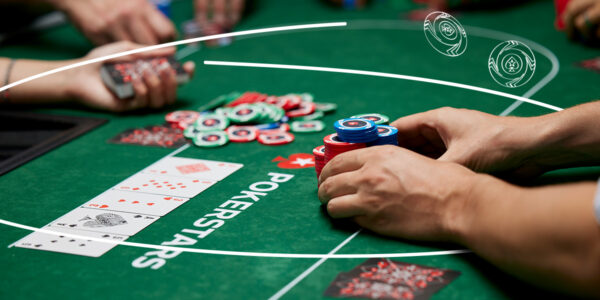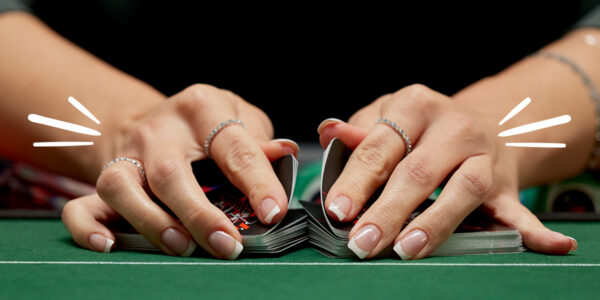Bad Reasons for… Playing a Session
So much of how well you play is determined by external conditions. The best way to protect yourself against tilt and mental game failings is to avoid putting yourself in a position where you are particularly vulnerable to these problems. The four best mental states to adopt just before logging some hands are: energised; inspired; focussed; and calm.
Here are some of the bad reasons for which people play sessions. They are almost always conducive to the very opposite of those four mental states. The following reasons to play poker lead to lethargic; bored; unfocussed; and emotional play.
Wanting to Unwind/Relax
When you’ve had a tough day at work or are exhausted from a social activity or sport, the last thing you should be doing is playing poker. If you are serious about the game and want to perform near to the best of your ability each time you log on to play, then it is vital to give yourself a recovery period between exertion and playing a session. Ask yourself how quickly your mind is processing things and how alert you feel before opening up the tables.

Putting in volume while stressed from work will mean that you are functioning with an already depleted tank of willpower. This leaves you more susceptible to succumbing to emotional interference if things don’t go as planned. Worse still, things are unlikely to go well when you feel worn out because you are making less optimal decisions than normal. Why enter into a poker situation where you will likely struggle to cope with adversity?
Because your Schedule Says So
Most of you reading this have probably been guilty at one point in time of setting unrealistic poker goals. Maybe you made a resolution on New Year to play X hands per month and ended up abandoning it by February. Maybe you have a bonus to clear or a loyalty level to strive for by the end of the month and put in bad quality, tired volume to reach it. Maybe reaching that target cost you more money than it made you!
Forcing volume when you don’t feel like it is another way to end up playing bored, unfocussed, and possibly emotionally volatile poker.
Implementing a pre-game warm up is one possible remedy to a lack of enthusiasm. I personally try to use training software for 10-15 minutes before playing. It warms up the mental muscles and creates a curiosity that really helps you stay focussed. In fact, having a deep curiosity about the strategy of the game has always helped to keep me concentrating.
If you’re really struggling to get into the mood to play though, it’s best to do something else for a while and try again later. Forced volume will usually be your lowest quality volume and that ruins win-rates over the long-term.
Because You’re Drunk
Getting home at 2am after a few too many whiskeys and firing up the PokerStars client is not a crime I can personally deny. You might feel like you’re playing well when your judgment is distorted but the chances are that you’re performing way below your maximum ability. While one or two drinks can help relax you and boost your confidence in a clear-headed way, playing when moderately or highly intoxicated is a recipe for disaster. It might be fun to throw some chips around after a night of drinking with friends, but it’s better to do that in a fun home game environment for lower stakes, instead of sabotaging your online poker career.
To Chase Losses
When things have been going badly, many players extend their session length or play on days when they would normally take a break from poker. The desperation that accompanies the feeling of chasing losses virtually guarantees that you will play far below your maximum ability. If we look closer though, we can see that the idea of chasing recent losses is purely an illusion.

Think about it. What is the difference between the $500 you lost yesterday and the $500 you lost two years ago? Nothing – they are both $500. Do you go around chasing that bad session you played on the 7th April 2017? Of course not.
The difference is purely emotional. The human tendency to obsess about recent losses only exists because they are still making this negative impression in your conscious mind. Your attitude towards losing is the problem – not the losing itself. The session from 2017 doesn’t bother you because you made peace with it long ago. Now you need to do the same with yesterday’s session. That money is gone now. In a sense, it was never truly yours any way as winnings are as temporary as losses in poker. The natural swings of the game have nothing to do with your long-term expectation so adopt more of an ‘easy come, easy go’ attitude to the game wherever possible. It is okay to prefer winning to losing, but it is how strongly you prefer it that determines your ability to handle downswings.
Do not play poker when the loss of a previous hour or day feels intolerable. Play poker only when you have mostly recovered from its sting.
Conclusion
You might encounter some other bad reasons for firing up the tables. All of them will create a bored; unfocussed; emotional; or lethargic experience. Another key skill is identifying when one of these mental states has come into being during a session. The best thing to do is to take a break under those circumstances.
Condimentum Nibh
Donec sed odio dui. Cras mattis consectetur purus sit amet fermentum. Vestibulum id ligula porta felis euismod semper. Curabitur blandit tempus porttitor.

